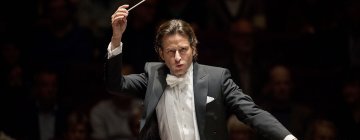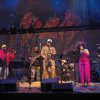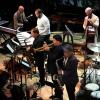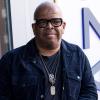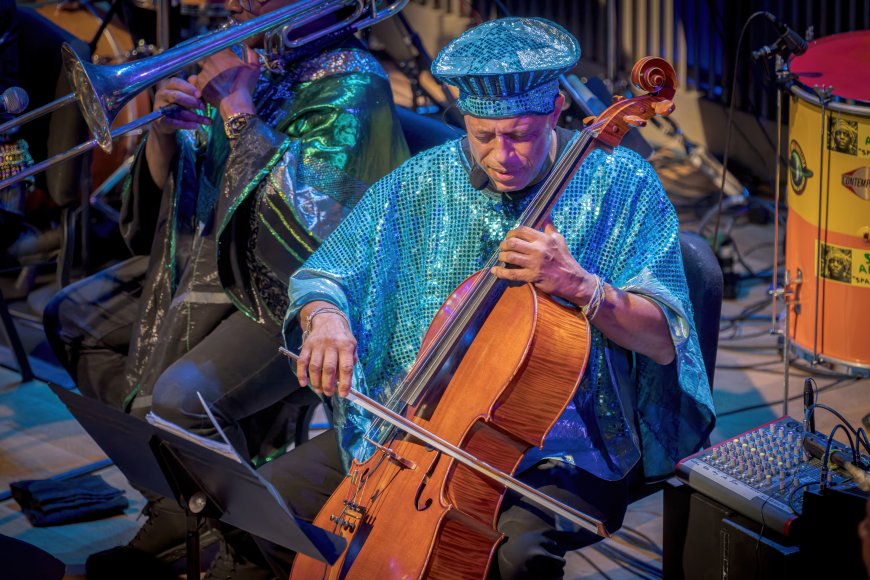
In jazz there are those musicians whose names don’t appear on the marquee, the consummate accompanists and well-traveled sidemen and sidewomen who play nightly in clubs, theaters, and restaurants with little recognition. Kicking off a series of profiles of these players with Kash Killion is admittedly a bit of misdirection, as he doesn’t fit neatly into those parameters. Whether he’s playing cello, bass, or sarangi, a three-string bowed South Asian folk instrument, Killion is unlikely to stay in the background for long.
At 69, he’s cut a brilliant and singular path across the musical landscape, collaborating with an unlikely constellation of jazz visionaries, blues greats, chamber ensembles, and classical Indian players, just for starters. Fittingly, he credits the stars for his restless curiosity. “I’m a Gemini, like Sun Ra, Cecil Taylor, and Marshall Allen,” he said in a recent phone conversation with SF Classical Voice from his home in West Marin County. “I don’t have to sleep eight hours.”
For Killion, these are not random musicians who share his sign. He has performed with many of the greatest artists in the post-bop jazz continuum, like trumpeter Donald Byrd, pianist George Cables, drummer Billy Higgins, and vibraphonist Bobby Hutcherson. Killion himself is often associated with seminal figures in jazz’s spacious outer rim, a loose aggregation that includes Ra, Taylor, and Marshall, as well as tenor saxophonist Pharoah Sanders and Los Angeles pianist/composer Horace Tapscott.
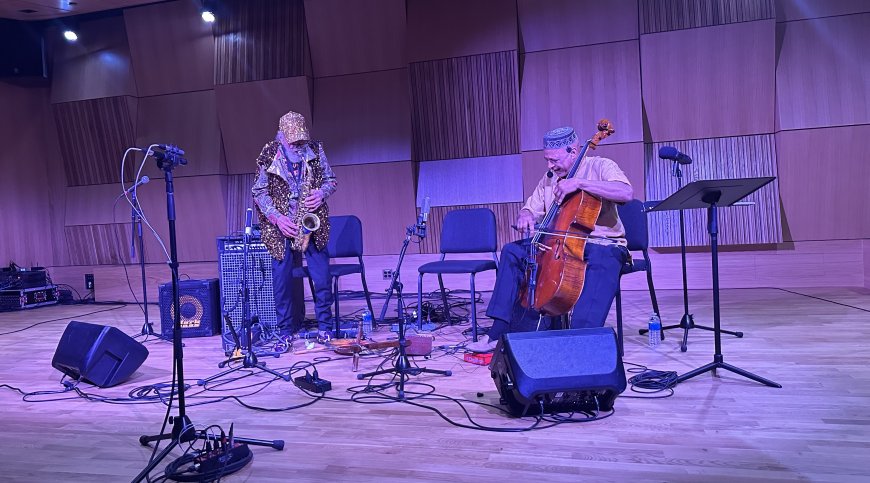
Growing up in the Mississippi River town of Alton, Illinois, about 18 miles north of St. Louis, Killion was immersed in music from birth. His brother was an accomplished trumpeter, and his cousin, drummer Phillip Wilson, was a founding member of the Art Ensemble of Chicago and played with the Paul Butterfield Blues Band. Another cousin, the great drummer Omar Clay, spent the latter half of his career in the Bay Area “I played bass with Omar in a quartet a lot, and sometimes he played in my trio,” Killion said.
Killion started out as a prog-rock-loving electric bassist in middle school while also playing in church. It wasn’t until he moved out to Los Angeles in the early 1970s that he really plunged into jazz and improvised music. He quickly struck up a close friendship with Killion’s Trillions saxophonist Henry Alexander and gravitated to the ferociously creative scene around pianist/ composer Horace Tapscott. Killion connected with Cuban pianist Willie Mullins, who’d made his mark in Orquesta Colón, and his musical travels commenced.
“All the places I’ve been, I’m always collecting instruments,” he said. “There are so many sounds in the world. We went on safari in Botswana, and I was telling people, the sounds the animals are making are the sounds we’re figuring out how to make.”
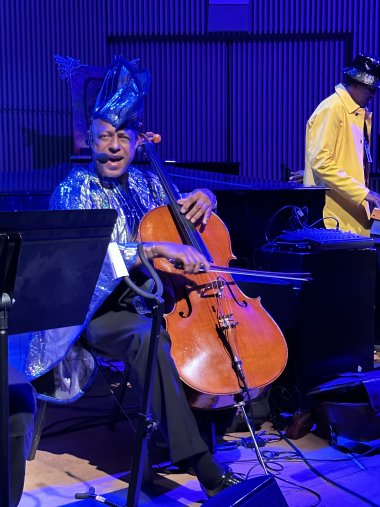
Killion is probably best known for his work with Sun Ra (1914-1993), the prolific composer, pianist, poet, and bandleader of the Sun Ra Arkestra whose influence on the Afro-futurist movement has expanded exponentially since his ascension some three decades ago. After first sitting in with the Arkestra at Koncepts Cultural Gallery in Oakland in 1989, Killion recalled that “[Ra] called me two weeks later: ‘Do you want to go on a European tour?’”
“India Cooke and I went and stayed there for a week, writing music for a French chamber orchestra and the Arkestra. The concert was sold out and the stuff he wrote for the orchestra was amazing. I was the head of the cellos and India of the violins.”
The concert was captured on the 1990 album Pleiades: A Jazz Symphonique (Leo Records). Though Killion has long followed his own creative trajectory, he’s never really fallen out of the Arkestra’s orbit. When the ensemble performs on the West Coast, like its recent four-night run at SFJAZZ, Killion pulls out his shiny outfits and rejoins the ranks, expanding the Arkestra’s instrumental palette.
The day after he spoke with SF Classical Voice, Killion flew off to Philadelphia to record another album with 101-year-old alto saxophonist Marshall Allen. The new album is following up on Two Stars in the Universe (Little Rocket, 2014), a duo session with Killion on cello, sarangi, and bolon — a West African hunter’s harp and percussion instrument. Allen joined Sun Ra’s Arkestra in the late 1950s and served as one of its most vivid voices for decades. After Ra’s death, Allen eventually took over leadership of the famously ascetic ensemble.
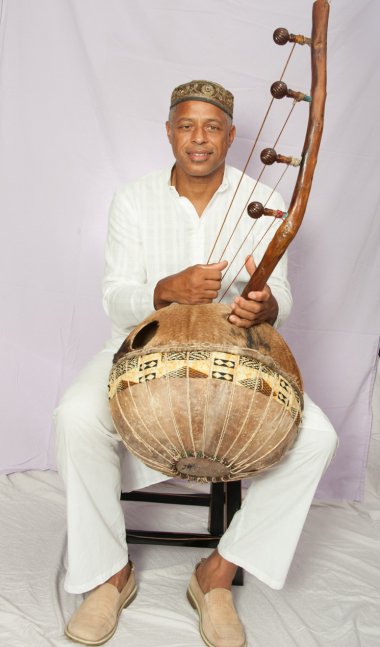
Given his propensity to pop up in the midst of creatively charged situations with consequential artists, it’s tempting to describe Killion as improvised music’s Zelig. But rather than blending into historical proceedings, like the titular antihero of Woody Allen’s 1983 faux-documentary, Killion opens up vast sonic possibilities wherever he lands. He’s performed around the world, collecting instruments along the way. Any conversation with him turns into a travelogue populated by a dizzying parade of luminaries, from tabla maestro Zakir Hussain and blues guitarist Elvin Bishop to Cuban bass great Cachao and pianist/composer Jon Jang, a seminal figure in the Asian American jazz movement.
Even now you never know where Killion’s going to show up. Last month, he was in Detroit with Beautiful Noise, a new band assembled by bassist Don Was, co-founder of the 1980s funk-rock band Was Not Was and president of Blue Notes Records. The next opportunity to see him perform is in Golden Gate Park as part of the Flower Piano Lounge on Sept. 20, when he brings his band Killion’s Trillions to the Lounge.
Killion’s Trillions has performed at almost every Flower Piano iteration since it started 10 years ago, and his Arkestra-inspired combo includes Los Angeles saxophonist Henry Alexander, conguero David Fraser, and violinist Sandi Poindexter. After his own set, Killion will be holding down the bass chair with Lavay Smith and Her Red Hot Skillet Lickers. The beloved, annual al fresco concert series was founded by Argentine-raised pianist Mauro Ffortissimo, a close friend, longtime musical collaborator, and former housemate of Killion.
“From my experience, Kash plays all that jazz, Indian music, free improvisation, anything you can think of,” Ffortissimo said. “We had a duo with cello and sarangi and I play piano liberado, which is beyond 12-tone scales, with hollow brass tubes, fish lines on the bass strings, and percussion things. I don’t know any other musician who can play dialogue like that.”
